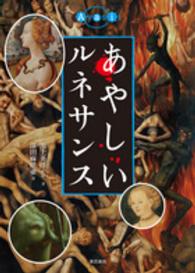- ホーム
- > 洋書
- > ドイツ書
- > Humanities, Arts & Music
- > Psychology
Full Description
This book provides insight into the unique challenges facing Indian and South Asian immigrants in the West—particularly in the United States. It explores the "baggage" they carry; their expectations versus the realities of negotiating a new cultural, social, religious, and economic milieu; nostalgia and idealization of the past; and the hybridity of existence. Within this context, the author discusses factors which often contribute to intergenerational family conflict among this population. Jacob asserts that this conflict is largely a product of differences in cultural values and identity, acculturation stress, and the experience of marginality. After analyzing and interpreting empirical data collected from two hundred families, he proposes the "Praxis-Reflection-Action" (PRA) Model: a five-stage therapeutic model and the first pastoral psychotherapeutic model developed for the Asian Indians living in the West.
Contents
1. Introduction and Overview.- 2. Historical and Cultural Factors in Ethnic Identity Formation of Asian Indian Immigrants: Understanding the Context of Care.- 3. Cultural Identity and Intergenerational Conflicts.- 4. Presentation of Findings and Interpretation of the Empirical Data.- 5. Relationship, Culture, Community and Personhood.- 6. Marginality and Theology of New Marginality.- 7. Cohesive Self and New Marginality: A Mutual Critical Correlation.- 8. Praxis-Reflection-Action Model: An Interdisciplinary Approach of Pastoral Care and Counseling.- 9. Application of Praxis-Reflection-Action Model of Pastoral Counseling.








